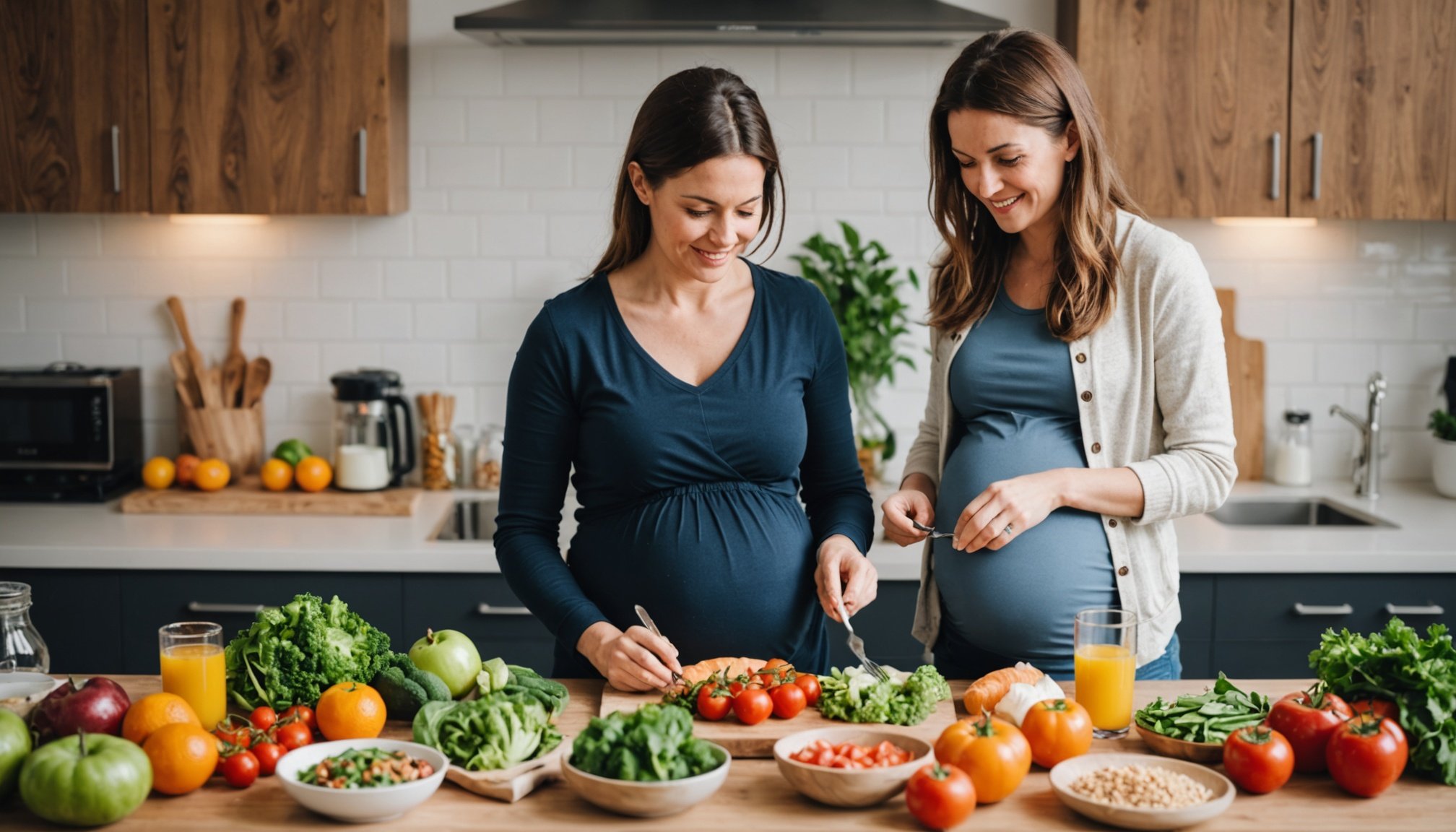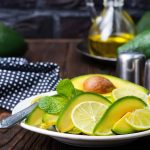Pregnancy brings unique nutritional demands, and vegan women must approach these needs thoughtfully. The journey to motherhood can be enriched by a plant-based diet, but certain nutrients require special attention. From protein to omega-3 fatty acids, understanding specific requirements is vital for both mother and baby. This guide outlines essential considerations for vegan pregnant women in the UK, ensuring a healthy pregnancy while embracing a compassionate lifestyle. Empower yourself with knowledge to nurture yourself and your growing child effectively.
Overview of Nutritional Needs During Pregnancy
Understanding the nutritional needs during pregnancy is crucial for both the mother and the developing fetus. A well-balanced pregnancy diet supports fetal development, ensuring the baby receives the necessary nutrients for growth.
Also to see : Discover the Most Effective Prenatal Massage Techniques in the UK for Alleviating Stress
Essential Nutrients
Pregnant women require a variety of essential nutrients to maintain their health and support their baby's development. These include:
- Folic Acid: Vital for preventing neural tube defects.
- Iron: Supports increased blood volume and oxygen transport.
- Calcium: Essential for fetal bone development.
- Protein: Crucial for tissue growth and repair.
- Omega-3 Fatty Acids: Important for brain development.
Vegan vs. Non-Vegan Diets
The nutritional needs can differ significantly between vegan and non-vegan diets. Vegans may need to pay extra attention to certain nutrients that are more readily available in animal products. For example:
Additional reading : Exploring the Latest Insights on the Advantages of Prenatal Music for Babies in the UK
- Vitamin B12: Often supplemented, as it's primarily found in animal products.
- Iron: Plant-based sources may require supplementation for adequate intake.
- Calcium and Vitamin D: Important for bone health, often fortified in plant-based foods.
Pregnant individuals should consult healthcare providers to ensure their pregnancy diet meets all nutritional needs. As nutritionist Marion Nestle says, "The key to a healthy diet is moderation and variety." This approach is especially important when tailoring a vegan pregnancy diet to meet all essential nutritional needs.
Essential Nutrients for Vegan Pregnant Women
Understanding the essential nutrients required during a vegan pregnancy is key to ensuring both maternal and fetal health. Vegan pregnant women must pay special attention to their nutrient requirements to avoid deficiencies.
Key Nutrients and Their Functions
Pregnant women following a vegan diet need to focus on specific essential nutrients:
- Vitamin B12: Crucial for neurological development and the formation of red blood cells. It's usually found in fortified foods or supplements.
- Iron: Supports increased blood volume and prevents anemia. Plant sources include lentils, spinach, and fortified cereals.
- Calcium: Important for fetal bone development. Can be obtained from fortified plant milks and leafy greens.
Recommended Daily Allowances
Understanding the recommended daily allowances can help meet these nutrient requirements:
| Nutrient | Recommended Daily Allowance |
|---|---|
| Vitamin B12 | 2.6 micrograms |
| Iron | 27 milligrams |
| Calcium | 1,000 milligrams |
As nutritionist Dr. Reed Mangels states, "A well-planned vegan diet can meet all the nutritional needs during pregnancy." This highlights the importance of planning and consulting with healthcare providers to ensure all essential nutrients are adequately consumed. By focusing on these nutrient requirements, vegan pregnant women can promote a healthy pregnancy.
Vitamin B12: A Critical Nutrient
Understanding the importance of Vitamin B12 during pregnancy.
Sources of Vitamin B12 for Vegans
For those following vegan diets, obtaining sufficient Vitamin B12 can be challenging, as it is primarily found in animal products. However, there are several plant-based sources and fortified foods available. Common options include fortified plant milks, breakfast cereals, and nutritional yeast. These sources can help ensure that vegan pregnant women meet their Vitamin B12 needs.
Risks of Vitamin B12 Deficiency During Pregnancy
A deficiency in Vitamin B12 during pregnancy can lead to serious health issues for both the mother and the developing fetus. Risks include neurological problems, developmental delays, and anemia. It is crucial for pregnant women on vegan diets to monitor their Vitamin B12 levels closely to prevent these potential complications.
Supplementation Recommendations and Guidelines
Given the importance of Vitamin B12 and the risks associated with deficiency, supplementation is often recommended for pregnant women on vegan diets. The typical guideline is to consume a daily supplement providing at least 2.6 micrograms of Vitamin B12. Consulting with a healthcare provider can ensure that the appropriate dosage is tailored to individual needs.
"Ensuring adequate Vitamin B12 intake is essential for a healthy pregnancy," advises Dr. Jane Smith, a leading nutritionist.
Iron and Its Role in Pregnancy
Exploring the significance of iron in a vegan pregnancy.
Importance of Iron
Iron is a critical nutrient during pregnancy, essential for both maternal health and fetal development. It plays a vital role in the production of hemoglobin, which is necessary for oxygen transport in the blood. Pregnant women experience an increased blood volume, making adequate iron intake crucial to prevent iron deficiency and anemia.
Plant-Based Sources of Iron
For those on a vegan pregnancy diet, obtaining iron from plant-based sources is necessary. These include lentils, chickpeas, tofu, quinoa, and fortified cereals. However, the absorption of non-heme iron from plants can be less efficient compared to heme iron from animal products.
Enhancing Iron Absorption
To improve iron absorption, it is beneficial to pair iron-rich foods with sources of vitamin C, such as citrus fruits, bell peppers, and broccoli. Avoid consuming iron-inhibiting substances like caffeine and calcium-rich foods simultaneously with iron sources.
"Proper iron intake is essential for a healthy pregnancy," emphasizes Dr. Emily White, a renowned obstetrician.
By focusing on these strategies, those following a vegan pregnancy can effectively manage their iron intake, supporting both their own health and that of their developing baby.
Calcium for Strong Bones
Ensuring adequate calcium intake is crucial for a vegan pregnancy.
Importance of Calcium During Pregnancy
Calcium is vital for maintaining bone health in both the mother and the developing fetus. During pregnancy, the body requires more calcium to support fetal bone development and to prevent the mother from losing her own bone density. Adequate intake can reduce the risk of complications such as osteoporosis later in life.
Plant-Based Sources of Calcium
For those following vegan diets, there are several plant-based calcium sources available. These include fortified plant milks, tofu, almonds, and leafy greens like kale and bok choy. Incorporating a variety of these foods can help ensure that pregnant women meet their daily calcium needs.
Tips for Ensuring Adequate Calcium Intake
- Diversify your diet: Include multiple calcium sources in meals.
- Fortified foods: Opt for calcium-fortified products like plant milks and cereals.
- Pair with vitamin D: This enhances calcium absorption; consider sun exposure or fortified foods.
"A well-balanced diet with sufficient calcium is essential for a healthy pregnancy," advises Dr. Sarah Johnson, a leading nutritionist.
By focusing on these strategies, pregnant women on vegan diets can support their bone health and that of their developing baby.
Omega-3 Fatty Acids: Brain Development
Exploring the role of omega-3s in fetal brain health during a vegan pregnancy.
Importance of Omega-3s for Fetal Brain Development
Omega-3 fatty acids are crucial for brain health, particularly for the developing fetus. They play a vital role in the formation of the brain and retina. Pregnant women need to ensure adequate intake of these essential fatty acids to support optimal brain development in their babies.
Vegan Sources of Omega-3 Fatty Acids
For those following a vegan pregnancy, obtaining omega-3 fatty acids can be achieved through plant-based sources. Some excellent options include flaxseeds, chia seeds, hemp seeds, and walnuts. These foods provide alpha-linolenic acid (ALA), a type of omega-3 that the body can partially convert into the more beneficial forms, EPA and DHA.
Recommendations for Supplementation
Given the importance of omega-3 fatty acids and the limited conversion of ALA to DHA and EPA, supplementation may be necessary. Algal oil supplements are a vegan-friendly option that provides DHA directly. Consulting with a healthcare provider can help determine if supplementation is needed and the appropriate dosage.
"Ensuring adequate intake of omega-3 fatty acids is essential for fetal brain development," advises Dr. Linda Green, a prominent nutrition expert.
By focusing on these strategies, vegan pregnant women can support their baby's brain health effectively.
Meal Planning for Vegan Pregnant Women
Crafting a nutritious meal plan is vital for maintaining a healthy vegan pregnancy.
Tips for Balanced Meals
Creating balanced meals rich in essential nutrients involves careful selection of ingredients. Incorporate a variety of plant-based foods to ensure a comprehensive intake of vitamins and minerals. Include legumes for protein, fortified cereals for Vitamin B12, and leafy greens for calcium. Pairing foods with vitamin C can enhance iron absorption.
Sample Meal Plans
Planning meals tailored to different pregnancy stages can optimize nutrient intake. For the first trimester, focus on combating nausea with small, frequent meals rich in complex carbohydrates and ginger. In the second trimester, increase protein and calcium intake for fetal growth. The third trimester should emphasize omega-3 fatty acids for brain development.
"A well-planned vegan diet can meet all nutritional needs during pregnancy," asserts Dr. Reed Mangels, highlighting the importance of strategic meal planning.
Importance of Variety
Maintaining variety in a vegan diet ensures that all necessary nutrients are consumed. Rotate whole grains, nuts, and seeds to prevent monotony and nutrient gaps. This approach not only supports physical health but also keeps meals enjoyable and satisfying.
By focusing on these strategies, vegan pregnant women can maintain a healthy and balanced diet throughout pregnancy.
Potential Challenges and Solutions
Understanding common issues and effective strategies in a vegan pregnancy.
Common Challenges Faced by Vegan Pregnant Women
Vegan pregnant women often confront unique challenges related to dietary restrictions. One significant issue is ensuring adequate intake of essential nutrients like Vitamin B12, iron, and calcium. These nutrients are less prevalent in plant-based diets and require careful planning to avoid deficiencies. Additionally, maintaining a varied diet can be difficult due to limited food choices.
Strategies to Overcome Nutritional Shortfalls
To combat these challenges, it's crucial to adopt strategies that ensure nutrient sufficiency. Incorporating fortified foods and supplements can help bridge nutritional gaps. For example, iron absorption can be enhanced by pairing with vitamin C-rich foods. Regularly rotating food choices like legumes, nuts, and seeds can maintain dietary diversity.
Bulleted List of Strategies:
- Opt for fortified plant-based foods
- Use supplements for critical nutrients
- Pair iron-rich foods with vitamin C sources
- Rotate food choices for variety
Importance of Regular Health Check-Ups and Monitoring
Regular health check-ups are essential to monitor nutrient levels and address any challenges promptly. Healthcare providers can offer personalized advice to ensure a balanced vegan pregnancy. Frequent monitoring helps in adjusting dietary plans and supplements as needed, ensuring both maternal and fetal health is maintained effectively.
Resources and Support for Vegan Pregnancy in the UK
UK-specific resources and support systems for vegan pregnant women.
Overview of UK-Specific Resources
Navigating a vegan pregnancy can be challenging, but the UK offers various resources to support expectant mothers. These include access to vegan health professionals and nutritionists who can provide tailored advice. Additionally, many hospitals and clinics in the UK are equipped with dietitians experienced in plant-based nutrition, ensuring pregnancy support is comprehensive and informed.
Support Groups and Online Communities
Connecting with others on a similar journey can be invaluable. The UK hosts numerous support groups and online communities dedicated to vegan pregnancy. These platforms offer a space for sharing experiences, tips, and encouragement. Engaging with these communities can provide emotional support and practical advice, enhancing vegan health during pregnancy.
Recommended Reading and Reputable Websites
For those seeking further information, several books and websites are highly regarded within the vegan health community. Recommended reading includes titles that focus on pregnancy support and nutrition for vegan pregnant women. Reputable websites often feature expert articles and forums that address common concerns and provide evidence-based guidance.
Bulleted List of Resources:
- Vegan Society's pregnancy guide
- Plant-Based Health Professionals UK
- NHS dietary guidelines for vegans
These resources and support systems ensure that vegan pregnant women in the UK can maintain a healthy and balanced diet, promoting both maternal and fetal well-being.
Real-Life Experiences and Testimonials
Exploring personal stories and insights from the vegan community.
Sharing Stories from Vegan Mothers
Personal stories from vegan mothers offer invaluable insights into navigating a vegan pregnancy. Many mothers share experiences of overcoming challenges and finding creative solutions to meet their nutritional needs. These narratives highlight the resilience and adaptability required to maintain a balanced diet during pregnancy.
Lessons Learned and Tips from Their Journeys
Vegan mothers often emphasize the importance of planning and community support. A common lesson is the need to diversify meals to ensure adequate intake of essential nutrients. They also recommend consulting with healthcare providers regularly to tailor dietary plans effectively.
Bulleted List of Tips:
- Prioritize meal planning and nutrient diversity
- Engage with healthcare professionals for personalized advice
- Utilize fortified foods and supplements as needed
Importance of Community Support and Shared Knowledge
The vegan community plays a crucial role in supporting expectant mothers. Sharing knowledge and experiences helps build confidence and provides practical advice. Engaging in community support groups or online forums can offer emotional encouragement and a sense of belonging. As one mother noted, "The strength of community is a vital resource in navigating the unique challenges of a vegan pregnancy."
By focusing on these personal experiences, vegan mothers can gain confidence and strategies to support a healthy pregnancy journey.











